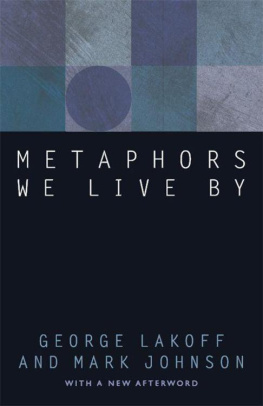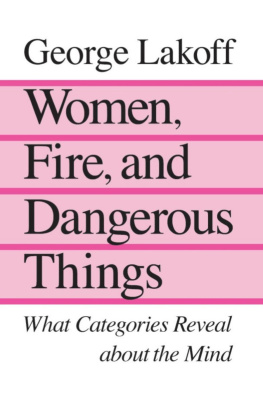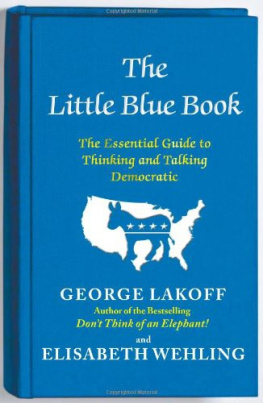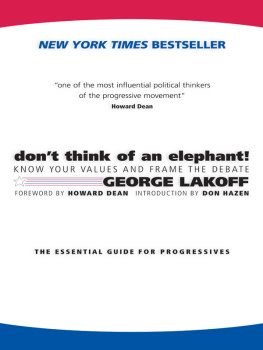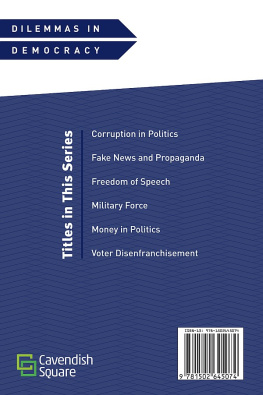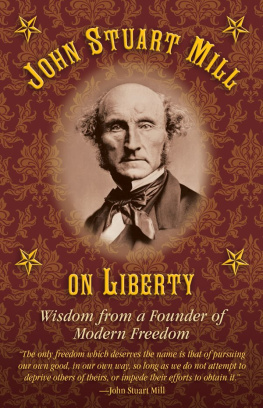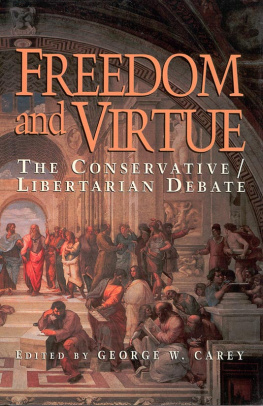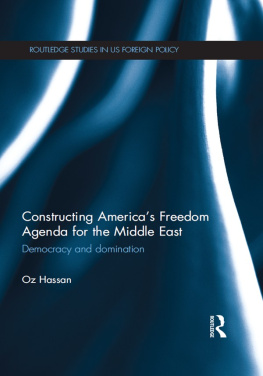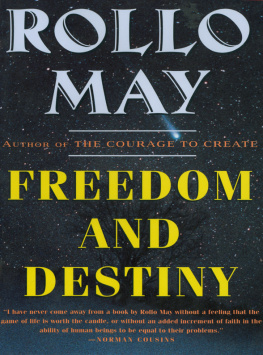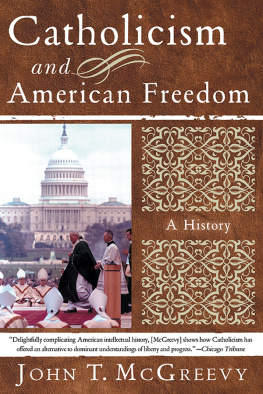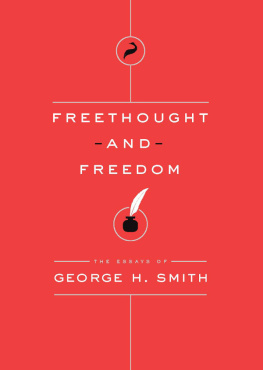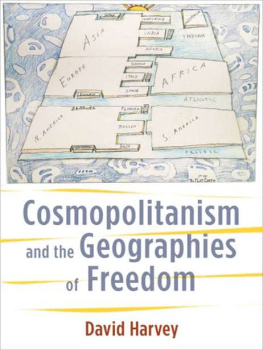ALSO BY GEORGE LAKOFF
Dont Think of an Elephant!
Know Your Values and Frame the Debate
Moral Politics: How Liberals and Conservatives Think
Metaphors We Live By
More Than Cool Reason: A Field Guide to Poetic Metaphor
Women, Fire, and Dangerous Things:
What Categories Reveal About the Mind
Philosophy in the Flesh:
The Embodied Mind and Its Challenge to Western Thought
Where Mathematics Comes From:
How the Embodied Mind Brings Mathematics into Being
WHOSE FREEDOM?
THE BATTLE OVER AMERICAS
MOST IMPORTANT IDEA

GEORGE LAKOFF
FARRAR, STRAUS AND GIROUX / NEW YORK
To Kathleen
Farrar, Straus and Giroux
19 Union Square West, New York 10003
Copyright 2006 by George Lakoff
All rights reserved
Distributed in Canada by Douglas & McIntyre Ltd.
Printed in the United States of America
First edition, 2006
Library of Congress Cataloging-in-Publication Data
Lakoff, George.
Whose freedom? : the battle over Americas most important idea /
George Lakoff. 1st ed.
p. cm.
ISBN-13: 978-0-374-15828-6 (hardcover: alk. paper)
ISBN-10: 0-374-15828-2 (hardcover: alk. paper)
1. LibertyUnited States. 2. ConservatismUnited States. 3. Progressivism (United States politics) 4. United StatesPolitics and government2001 I. Title.
JC599.U5L25 2006
323.440973dc22
2006004265
Designed by Jonathan D. Lippincott
www.fsgbooks.com
1 3 5 7 9 10 8 6 4 2
CONTENTS
INTRODUCTION:
IN THE NAME OF FREEDOM
Ideas matter. Perhaps no idea has mattered more in American history than the idea of freedom.
The central thesis of this book is simple. There are two very different views of freedom in America today, arising from two very different moral and political worldviews dividing the country.
The traditional idea of freedom is progressive. One can see traditional values most clearly in the direction of change that has been demanded and applauded over two centuries. America has been a nation of activists, consistently expanding its most treasured freedoms:
The expansion of citizen participation and voting rights from white male property owners to nonproperty owners, to former slaves, to women, to those excluded by prejudice, to younger voters
The expansion of opportunity, good jobs, better working conditions, and benefits to more and more Americans, from men to women, from white to nonwhite, from native born to foreign born, from English speaking to nonEnglish speaking
The expansion of worker rightsfreedom from inhumane working conditionsthrough unionization: from slave labor to the eight-hour day, the five-day week, worker compensation, sick leave, overtime pay, paid vacations, pregnancy leave, and so on
The expansion of public education from grade school to high school to college to postgraduate education
The expansion of knowledge through science from isolated figures like Benjamin Franklin to scientific institutions in the great universities and governmental institutions like the National Science Foundation and the National Institutes of Health
The expansion of public health and life expectancy
The expansion of consumer protection through more effective government regulation of immoral or irresponsible corporations and class action suits within the civil justice system
The expansion of diverse media and free speech from small newspapers to the vast media/Internet possibilities of today
The expansion of access to capital from wealthy landholders and bankers to all the ways ordinary peoplemore and more of themcan borrow money today
The expansion, throughout the world, of freedom from colonial rulefor the most part with the backing of American foreign policy
These are among the progressive trends in American history. Progress has not always been linear, and the stages have been far from perfect, but the trends have been thereuntil recently. The rise of radical conservatism in America threatens to stop and reverse these and other progressive trends together with the progressive ideal of freedom that has propelled them all.
Indeed, the reversal has proceeded at a rapid pace. Voting rights are being threatened, good-paying jobs eliminated or exported, benefits cut or eliminated. Public education is being gutted and science is under attack. The media is being consolidated, corporate regulations eliminated, the civil justice system threatened, public health programs cut. Unions are being destroyed and benefits taken away. There are new bankruptcy laws limiting access to capital for ordinary people. And we are seeing the promotion of a new form of free-market colonialism in the guise of free-trade agreements and globalization, and even the use of military force to support these policies.
But for radical conservatives, these developments are not movements away from freedom but toward their version of freedom. Where most Americans in the last century have seen an expansion of freedoms, these conservatives see curtailments of what they consider freedom. What makes them conservatives is not that they want to conserve the achievements of those who fought to deepen American democracy. Its the reverse: They want to go back to before these progressive freedoms were established. What they want to conserve is, in most cases, the situation prior to the expansion of traditional American ideas of freedom: before the great expansion of voting rights, before unions and worker protections and pensions, before civil rights legislation, before public health and environmental protections, before Social Security and Medicare, before scientific discoveries contradicted fundamentalist religious dogma. That is why they harp so much on narrow so-called originalist readings of the Constitutionon its letter, not its spiriton activist judges rather than an inherently activist population.
We will be asking three questions:
How are radical conservatives achieving their reversal of freedom?
Why do they want to reverse traditional freedoms?
What do they mean by freedom?
Freedom defines what America isand it is now up for grabs. The radical right is in the process of redefining the very idea. To lose freedom is a terrible thing; to lose the idea of freedom is even worse.
The constant repetition of the words liberty and freedom by the right-wing message machine is one of the mechanisms of the idea theft in progress. When the words are used by the right, their meaning shiftsgradually, almost imperceptibly, but it shifts.
The speeches at the 2004 Republican National Convention constantly invoked the words freedom, free, and liberty. George W. Bush, in his second inaugural address, used these words forty-nine times in a twenty-minute speechevery forty-third word. And if you take into account the oppositestyranny, dictatorship, slavery, and so onas well as associated words like democracy, the proportion rises higher. From freedom fries to the Freedom Film Festival, the right wing is claiming the words liberty and freedom as their brand: Jerry Falwells National Liberty Journal, Liberty University, Liberty Counsel, Operations Iraqi Freedom and Enduring Freedom, and the list goes on.
To many progressives, the rights use of freedom is pure hypocrisy, and George W. Bush is the leading hypocrite. How, liberals ask, can Bush mean anything at all by freedom when he imprisons hundreds of people in Guantnamo indefinitely with no due process in the name of freedom; when he sanctions torture in the name of freedom; when he starts a preemptive war on false premises and retroactively claims it is being waged in the name of freedom; when he causes the deaths of tens of thousands of innocent Iraqi civilians in the name of freedom; when he supports oppressive regimes in Saudi Arabia, Egypt, and Pakistan, while claiming to promote freedom in the Islamic world; when he sanctions the disenfranchisement of African-American voters in Florida and Ohio in the name of freedom; when he orders spying on American citizens in America without a warrant in the name of freedom; when, in the name of freedom, he seeks to prevent women from making their own medical decisions, to stop loving couples who want to marry, to stop families from being able to remove life supports when their loved ones are all but technically dead.
Next page

